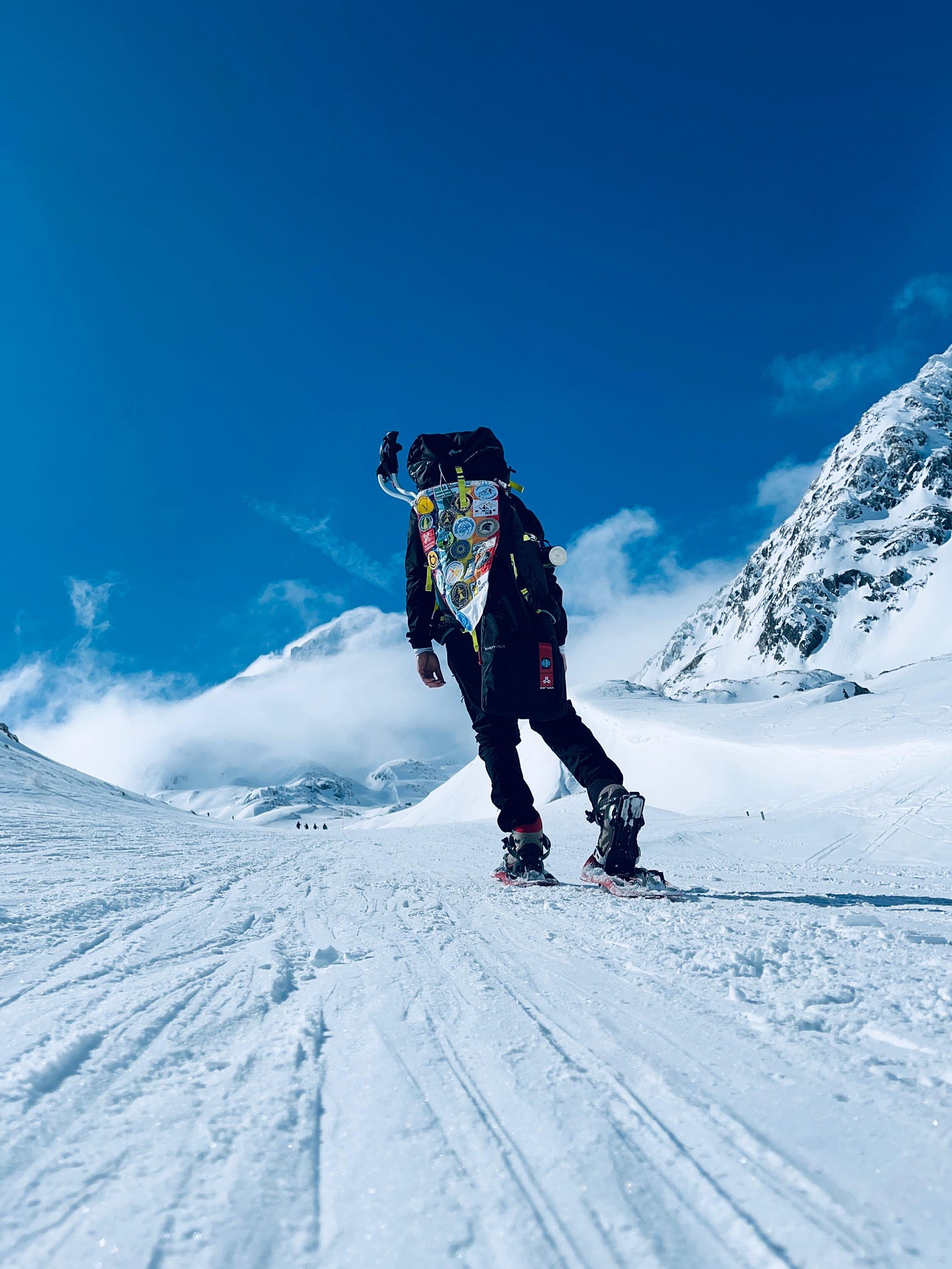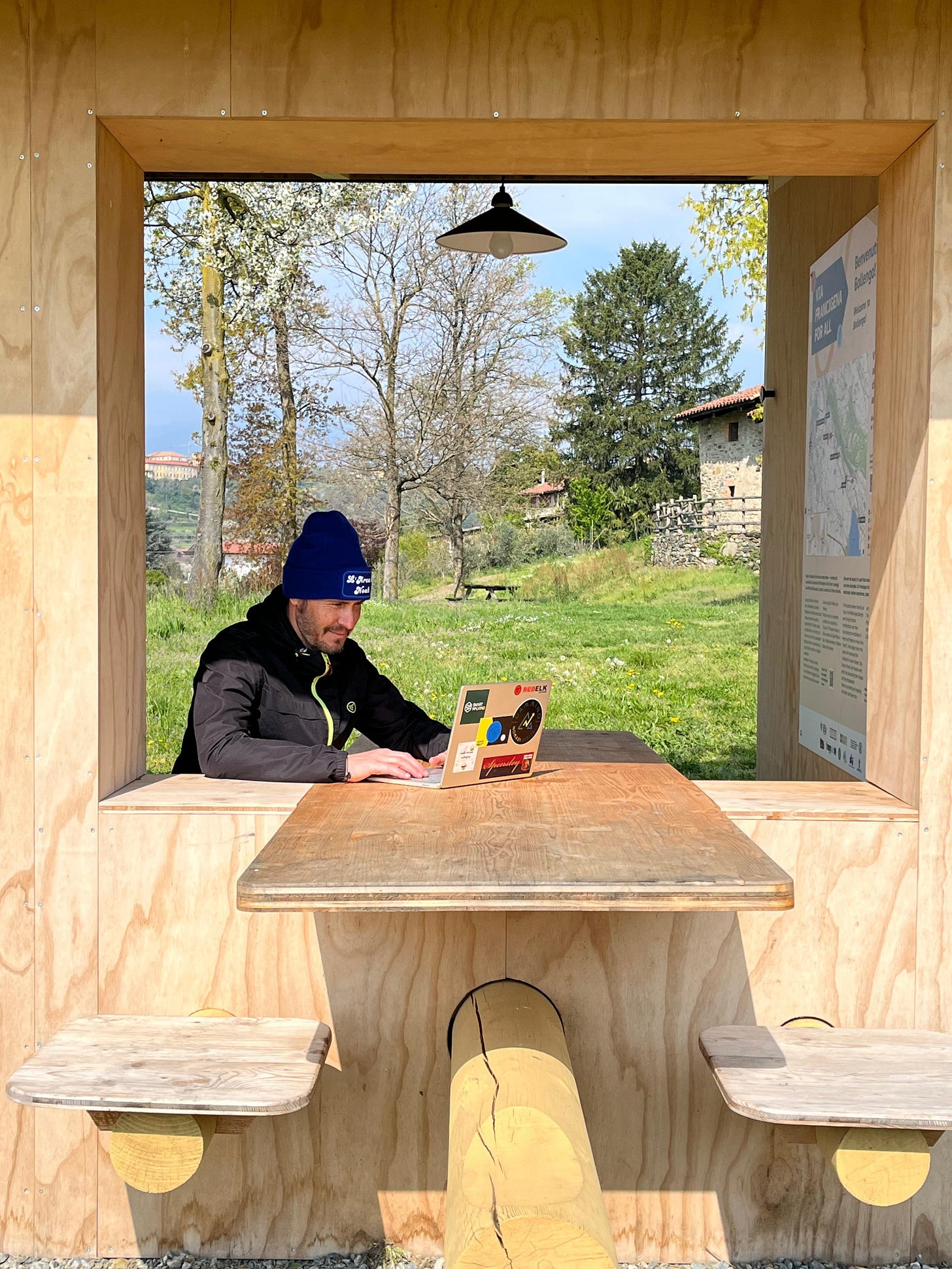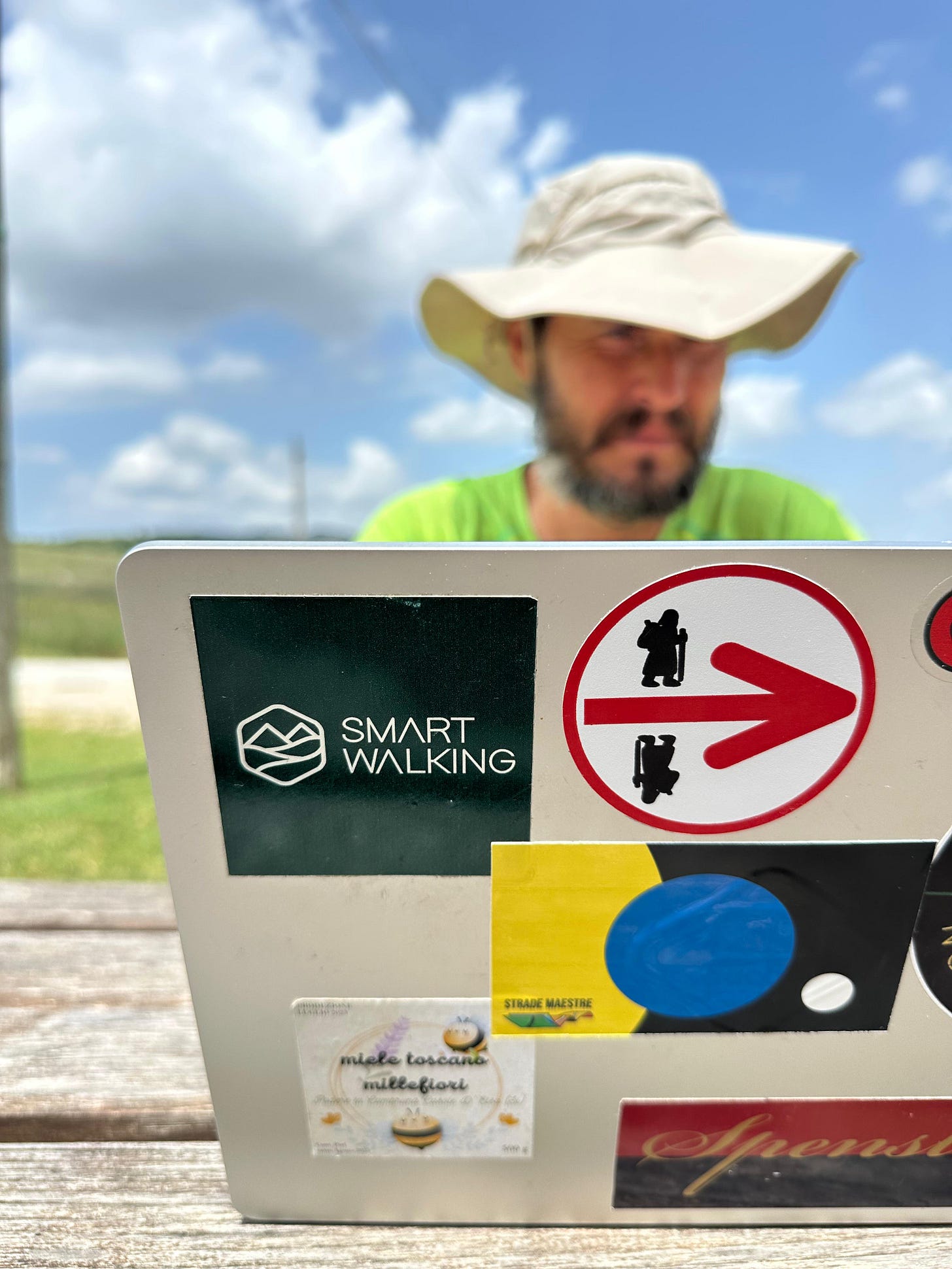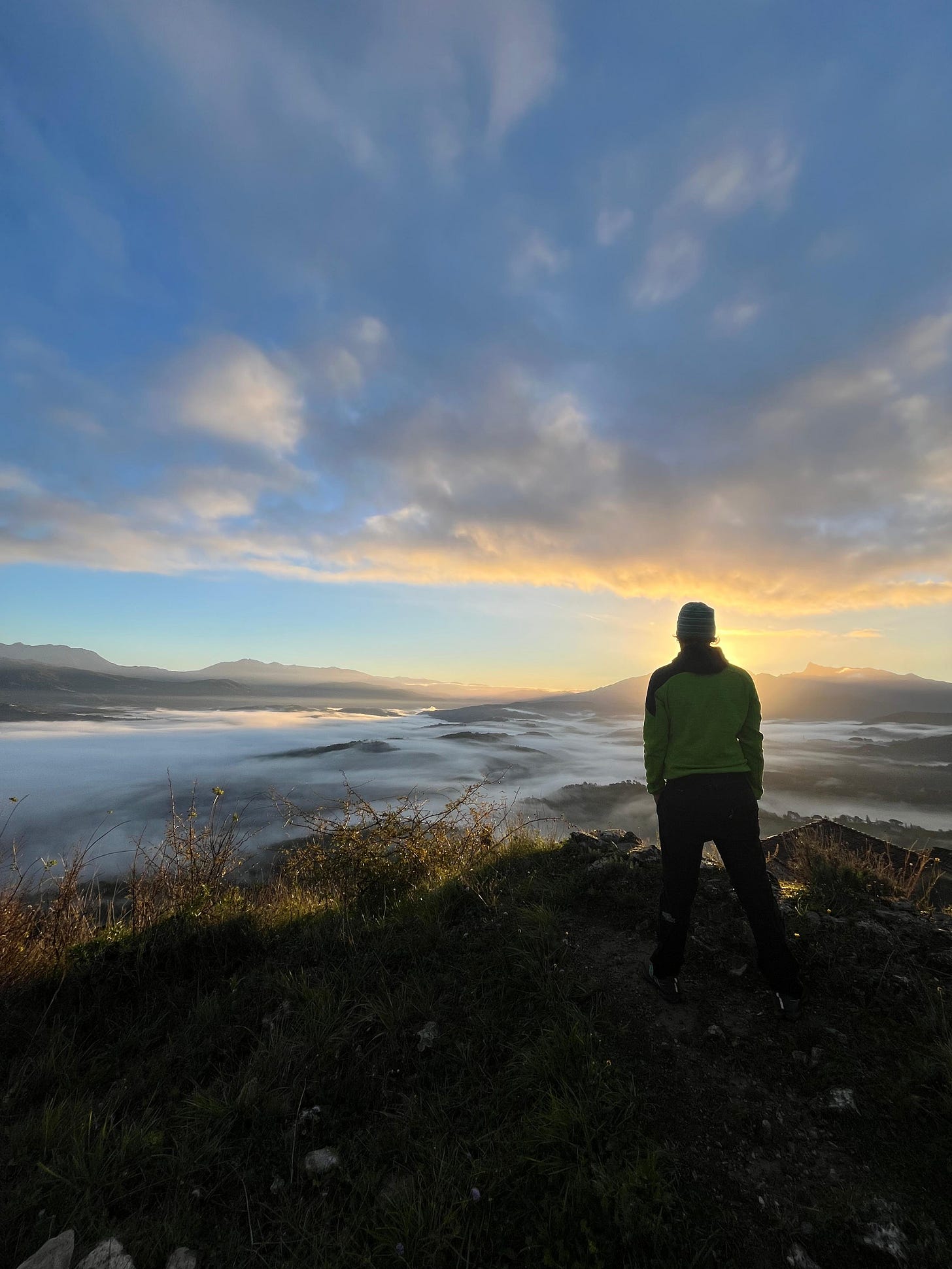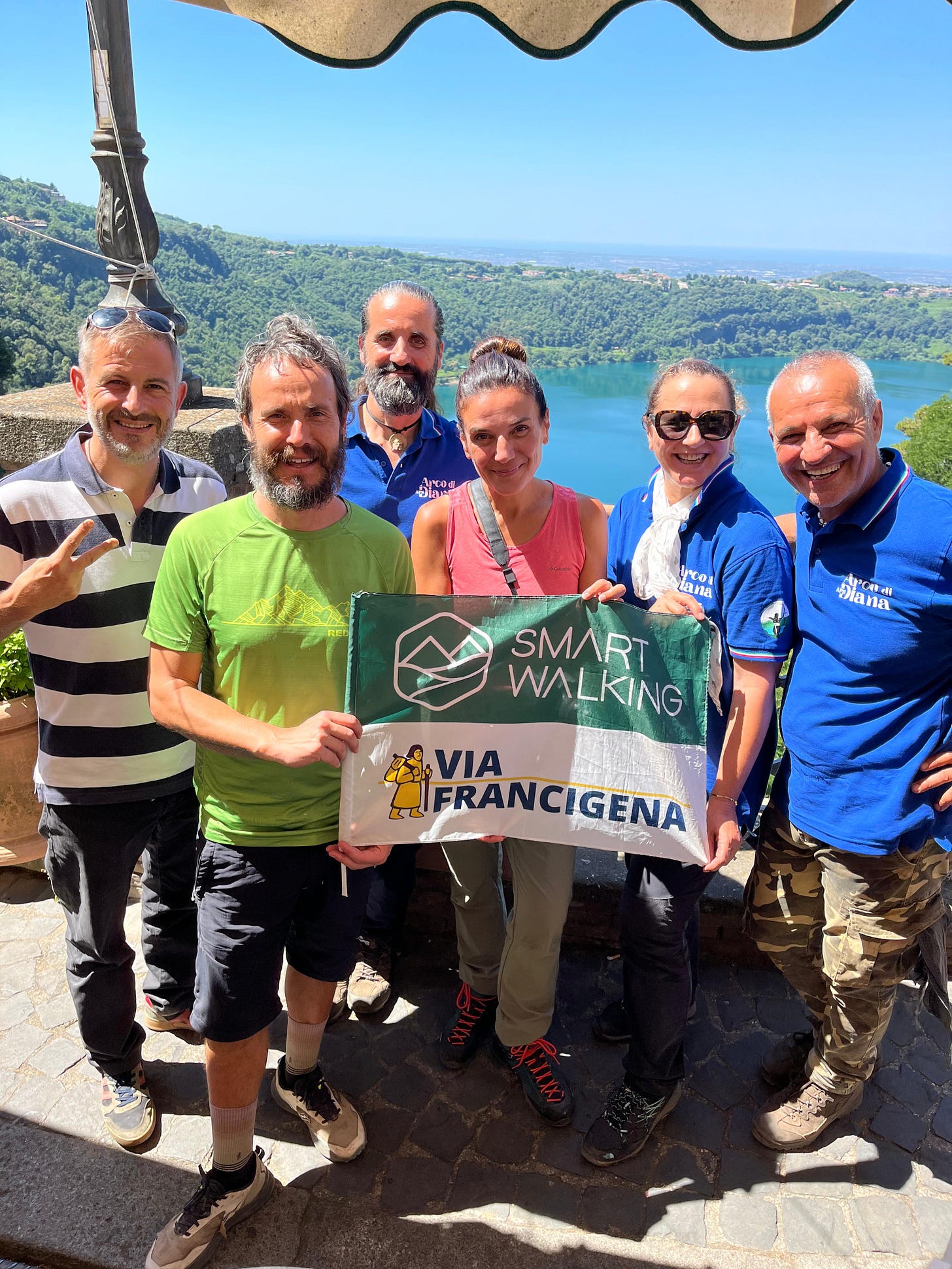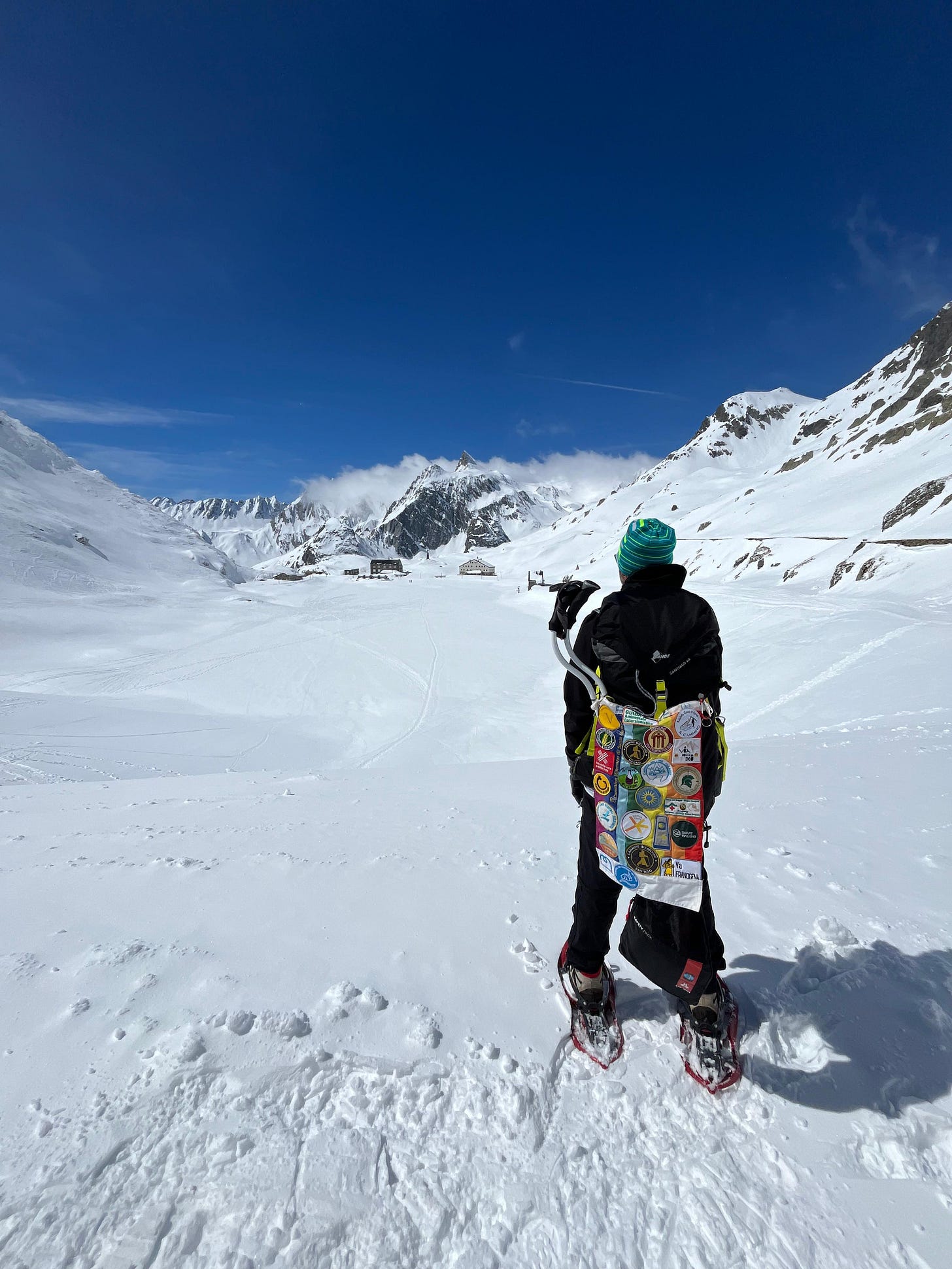The One About Davide Fiz...
...and His Surprisingly Uncomfortable Advice for Digital Nomads
Digital nomads, gather around.
Every year you’re fed the same motivational tapas:
“Live everywhere!”
“Work from paradise!”
“This beach bar has great Wi-Fi!”
“Make Chiang Mai your personality!”
And then comes Davide Fiz, founder of Smart Walking, a man who manages to dismantle half of digital-nomad culture without ever raising his voice.
Davide doesn’t do “laptop by the ocean” photoshoots.
He doesn’t sell the dream of effortless productivity in exotic locations.
He walks the walk. Literally.
He walks while he thinks, he walks while he works, he walks while he redesigns the way many of us obsessively try to live.
And everything he says in our interview for Remote Workers for Remote Villages hits the exact nerve digital nomads don’t want touched… but absolutely need to hear.
This is Davide Fiz’s message — Nomag style.
You don’t need a new country. You need a new rhythm.
Digital nomads love geography.
A new country is a new narrative.
A new narrative is a new identity.
And nothing feels more “productive” than changing continents when what you really need is eight uninterrupted hours of real sleep.
But Davide says something radically simpler: “You can shape your life around yourself without giving anything up.”
Translation:
You can move to Bali, Lisbon, Tbilisi, Buenos Aires — but if you bring your old habits with you, the burnout will arrive in checked luggage.
Nomadism doesn’t fix your rhythm. Rhythm fixes your nomadism.
A smaller town won’t make you irrelevant. It will reboot your nervous system.
Nomads fear two things: bad Wi-Fi and becoming professionally invisible.
“That village is too small.”
“I’ll lose opportunities.”
“No one will know I exist.”
Davide shuts all of that down with one line: “You can work remotely or in smaller towns without sacrificing anything.”
Not less work. Not fewer clients. Not fewer opportunities. Just less noise.
This is the part digital nomads forget: cities drain you before they empower you.
They overstimulate, they accelerate, they compress.
Meanwhile, in a smaller town:
your vagus nerve stops crying
your creativity stops begging for mercy
your time stops being a hostage
your day stops feeling like you’re surviving a video game on “hard” mode
It’s not a downgrade. It’s an upgrade — just not the kind you can post on Instagram.
Your problem is not work. It’s how you relate to it.
Davide’s most dangerous sentence - the one that should come with a trigger warning for Type A digital nomads: “Build your life around what makes your days emotionally and physically sustainable.”
This is not “self-care.” This is architectural design for humans.
Most digital nomads rebuild their life… around deadlines, client expectations, flights, and the illusion that mobility equals freedom.
Davide flips the model: first the body → then the mind → then the work → then the place.
And suddenly, everything becomes obvious. We didn’t need a new passport stamp. We needed a new baseline.
You don’t need to ‘escape the city.’ You just need to stop living in emergency mode.
Nomads love cities — but cities don’t always love them back. They drain energy, attention, clarity, and often your entire sense of grounding.
Davide explains it beautifully: “This way of living is easier to find outside the big cities.”
Not because outside is “better.” But because outside is quieter, slower, human-sized.
It gives you space to breathe, recalibrate, think, focus.
And for digital nomads constantly switching countries, visas, colivings, coworkings and WhatsApp groups, this is uncomfortable but true:
You don’t need more movement.
You need more stillness.
The real comfort zone? The rhythm you never question.
At the end of the interview, Davide drops the line that should be printed on every remote worker’s boarding pass: “Step outside your comfort zone at least once in life. Try a way of living that isn’t imposed by society.”
Digital nomads think they’re always outside the comfort zone - new airports, new apartments, new SIM cards, new friendships every 12 minutes.
But here’s the truth: your real comfort zone isn’t a place.
It’s the pace you refuse to change.
The rush.
The overstimulation.
The constant “on.”
The workday made of micro-panics.
The belief that freedom = motion.
Leaving the comfort zone doesn’t mean changing latitude.
It means changing assumptions.
And that is far scarier - and far more transformative - than a one-way ticket to Thailand.
Smart Walking isn’t a trend. It’s a survival mechanism.
This is the part of Davide’s philosophy that nomads should take seriously: remote working gives you location freedom. Smart walking gives you mental survival.
It’s not a metaphor.
It’s a method.
A method that forces you to do the things digital nomads chronically avoid:
• slow down
• reconnect with your body
• stop mistaking movement for meaning
• stop confusing stimulation with wellness
• build presence instead of collecting coordinates
Smart Walking is a reset button disguised as a walk.
And you understand its power not when he describes it… but when you notice how he lives.
Davide Fiz tells digital nomads exactly what they don’t want to hear — and exactly what they need.
That you don’t need more places.
You need better presence.
That you don’t need constant motion.
You need conscious rhythm.
That you don’t need another Instagrammable view.
You need a nervous system that isn’t on fire.
That freedom doesn’t come from flights - it comes from alignment.
Davide is not selling a dream.
He is holding up a mirror.
And the reflection says something simple and slightly uncomfortable:
You don’t have to live everywhere.
You just have to live well - anywhere.




